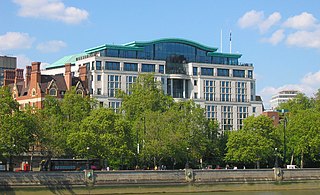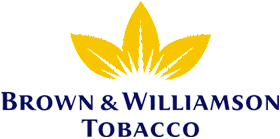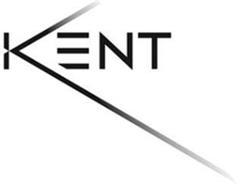Related Research Articles

The tobacco industry comprises those persons and companies who are engaged in the growth, preparation for sale, shipment, advertisement, and distribution of tobacco and tobacco-related products. It is a global industry; tobacco can grow in any warm, moist environment, which means it can be farmed on all continents except Antarctica.

British Leyland was an automotive engineering and manufacturing conglomerate formed in the United Kingdom in 1968 as British Leyland Motor Corporation Ltd (BLMC), following the merger of Leyland Motors and British Motor Holdings. It was partly nationalised in 1975, when the UK government created a holding company called British Leyland, later renamed BL in 1978. It incorporated much of the British-owned motor vehicle industry, which in 1968 had a 40% share of the UK car market, with its history going back to 1895. Despite containing profitable marques such as Jaguar, Rover, and Land Rover, as well as the best-selling Mini, BLMC had a troubled history, leading to its eventual collapse in 1975 and subsequent part-nationalisation.

British American Tobacco p.l.c. (BAT) is a British multinational company that manufactures and sells cigarettes, tobacco and other nicotine products. The company, established in 1902, is headquartered in London. As of 2021, it is the largest tobacco company in the world based on net sales.

Brown & Williamson Tobacco Corporation was a U.S. tobacco company and a subsidiary of multinational British American Tobacco that produced several popular cigarette brands. It became infamous as the focus of investigations for chemically enhancing the addictiveness of cigarettes. Its former vice-president of research and development, Jeffrey Wigand, was the whistleblower in an investigation conducted by CBS news program 60 Minutes, an event that was dramatized in the film The Insider (1999). Wigand claimed that B&W had introduced chemicals such as ammonia into cigarettes to increase nicotine delivery and increase addictiveness.

The Japan Tobacco Inc. (JT) is a Japanese diversified tobacco company. It was established in 1985 as a tokushu gaisha that inherited the right to monopolize and manufacture cigarettes from the Japan Tobacco and Salt Public Corporation and required the government to hold at least 50% of its shares. In addition to tobacco, JT diversified its businesses, establishing the pharmaceutical research institute in 1993 and making a full-scale entry into the food and beverage industry in 1998. In 2008, it acquired the food manufacturer Katokichi, now TableMark, as a wholly-owned subsidiary, integrating its food business.

Imperial Brands plc is a British multinational tobacco company headquartered in London and Bristol, England. It is the world's fourth-largest international cigarette company measured by market share after Philip Morris International, British American Tobacco and Japan Tobacco and the world's largest producer of fine-cut tobacco and tobacco papers.

W.D. & H.O. Wills was a British tobacco manufacturing company formed in Bristol, England. It was the first British company to mass-produce cigarettes. It was one of the 13 founding companies of the Imperial Tobacco Company ; these firms became branches, or divisions, of the new combine and included John Player & Sons.

Kent is an American brand of cigarettes, currently owned and manufactured by R.J. Reynolds Tobacco Company in the United States and British American Tobacco elsewhere. The brand is named after Herbert Kent, a former executive at Lorillard Tobacco Company.

British American Tobacco US, mostly known for its acronym BATUS, was the United States subsidiary of multinational company British American Tobacco (BAT), the world's second largest cigarette manufacturer. BATUS served as the U.S. holding company for BAT. In the 1960s, the company diversified into areas such as insurance, drink, and retail.
Rothmans International PLC was a British tobacco manufacturer. Its brands included Rothmans, Player's and Dunhill. Its international headquarters were in Hill Street, London and its international operations were run from Denham Place in Denham Village, Buckinghamshire.

State Express 555, known as 555 (Three-Fives), is a Westminster, London-based cigarette originally manufactured in the United Kingdom by the Ardath Tobacco Company. The overseas rights to the brand excluding the United Kingdom, were acquired by British American Tobacco (BAT) in 1925.

Sir Hugo Cunliffe-Owen, 1st Baronet was an English industrialist.
Joseph Frederick Cullman III was an American businessman, CEO of Philip Morris Company from 1957 to 1978 and tennis aficionado.
Louis Francis Bantle was an American business executive who led UST Inc. and its U.S. Smokeless Tobacco Company subsidiary, overseeing a dramatic rise in the popularity of its Copenhagen and Skoal brands of dipping tobacco, as well as introducing versions of its tobacco products such as Skoal Bandits that became popular with young adult males in the United States taking 80% of the country's market for chewing tobacco.

Smoking in the United Kingdom involves the consumption of combustible cigarettes and other forms of tobacco in the United Kingdom, as well as the history of the tobacco industry, together with government regulation and medical issues.

Ceylon Tobacco Company PLC (CTC) is a Sri Lankan tobacco company engaged in the manufacture, marketing and export of cigarettes. It is a subsidiary of British American Tobacco. CTC holds the monopoly of cigarette and tobacco sales in Sri Lanka. British Tobacco started selling cigarettes in 1904-1911. CTC has a primary listing on the Colombo Stock Exchange since 1980s.

Imperial Tobacco Canada Limited is a cigarette manufacturing company operating in Canada. It is a wholly owned subsidiary of British American Tobacco. It was created in 1908 and bought out the Canadian interests of the American Tobacco Company, which was a monopoly in the United States until it was reorganized in 1911. Imperial Tobacco Canada has had no relationship to Imperial Tobacco Group plc since 1980, though British American Tobacco was established as a joint venture between Imperial Tobacco Group and American Tobacco. Imasco sold their stake to BAT in 2000.

ITC Limited is an Indian company headquartered in Kolkata. ITC has a diversified presence across industries such as FMCG, hotels, software, packaging, paperboards, specialty papers and agribusiness. The company has 13 businesses in 5 segments. It exports its products in 90 countries. Its products are available in 6 million retail outlets.
Everest cigarette is a brand of cigarettes, currently owned and manufactured by British American Tobacco Zimbabwe Holdings.
Richard Anthony Garrett was a British business executive, chairman of Imperial Tobacco (1973–1979).
References
- 1 2 3 4 5 6 7 8 9 10 "Sir Richard Dobson". The Times. No. 64785. 27 October 1993.
- ↑ "Clifton College Register" Muirhead, J.A.O. p438: Bristol; J.W Arrowsmith for Old Cliftonian Society; April, 1948
- ↑ "British-American Tobacco Company Limited". The Times. No. 57823. 20 March 1970.
- 1 2 3 4 5 "Business diary". The Times. No. 57823. 20 March 1970.
- 1 2 3 4 5 6 Stern, Michael (17 June 1973). "British‐American Tobacco's Big Move". The New York Times. Retrieved 11 April 2020.
- ↑ "Travels in China". The Scotsman. 14 February 1946.
- ↑ "BAT £10m up after six months". The Times. No. 57936. 5 August 1970.
- ↑ "Business Diary: Stark truth and the asset-stripper". The Times. No. 58691. 26 January 1973.
- 1 2 3 4 Braham, Michael (13 May 1973). "This man has £157m to spend". The Observer. Retrieved 11 April 2020.
- ↑ Management Today. Haymarket Press. 1969. p. 47.
- ↑ Leigh, David (12 June 1978). "Freedom is a cigarette". The Guardian. Retrieved 11 April 2020.
- 1 2 "Sir Richard Dobson: tough BAT team player". Financial Times. No. 32203. 28 October 1993.
- ↑ Connell, Brian (10 May 1976). "The man in British Leyland's driving seat". The Times. No. 59700.
- 1 2 Dodsworth, Terry (22 October 1977). "Dobson—man Who Took Leyland Post from Sense of Public Duty". Financial Times. No. 27390.
- ↑ "British businessman out after race slur". The New York Times. 22 October 1977. Retrieved 9 April 2020.